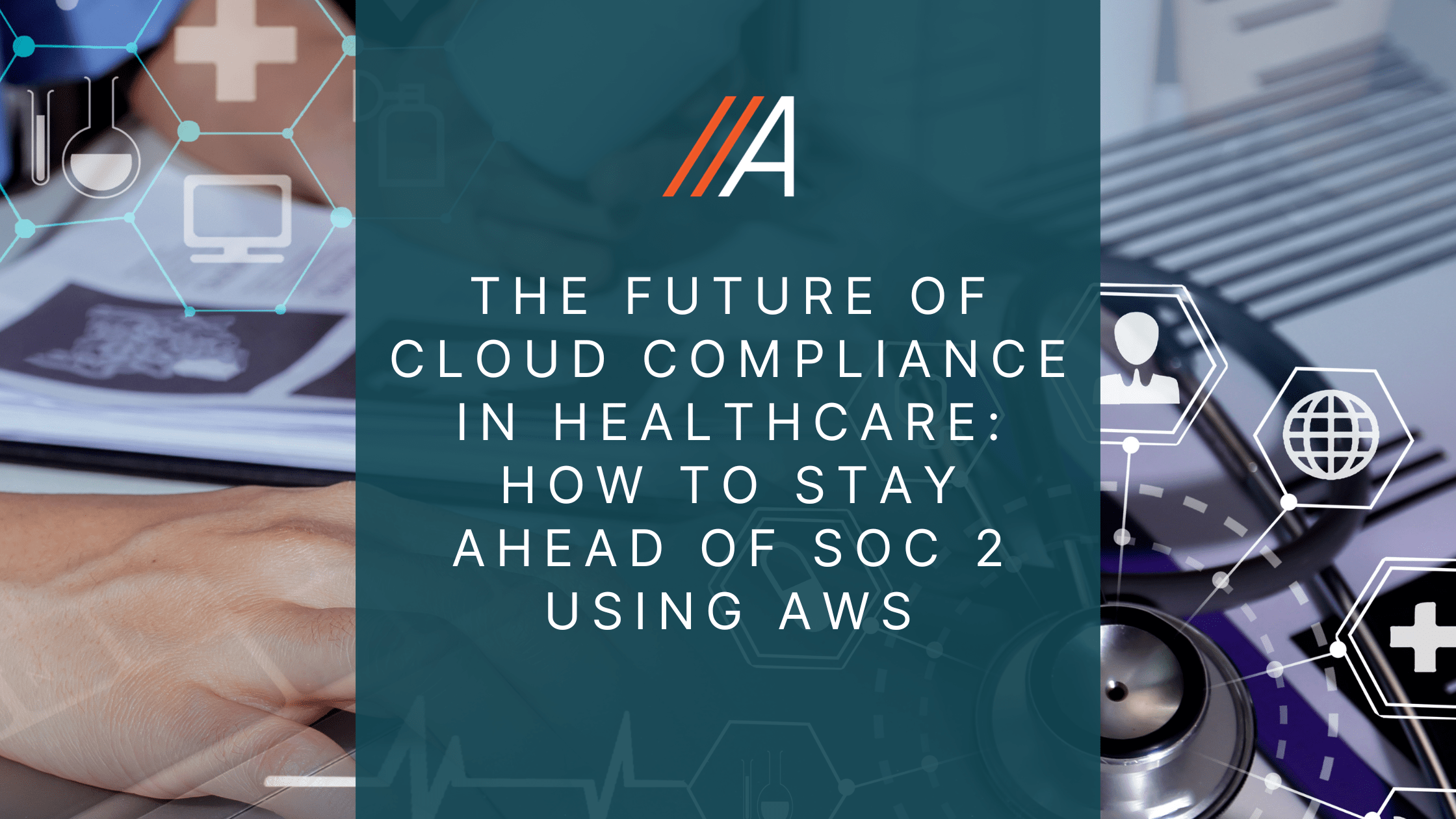
The Future of Cloud Compliance in Healthcare: How to Stay Ahead of SOC 2 Using AWS
Oct 10, 2024 | Articles, AWS Marketplace
As healthcare organizations increasingly transition to cloud-based systems, the demand for robust security measures and compliance protocols becomes even more crucial. With sensitive patient data at stake, compliance frameworks like SOC 2 have emerged as essential to maintaining trust and security in the cloud. But how can healthcare organizations stay ahead of SOC 2 requirements, especially with the rapid growth of cloud technologies like AWS? This post explores the future of cloud compliance in healthcare and how organizations can use AWS to not just meet, but exceed, SOC 2 standards.
The Rising Importance of SOC 2 in Healthcare
SOC 2 (System and Organization Controls 2) is a rigorous auditing procedure designed to ensure service providers securely manage data to protect the privacy and interests of their clients. For healthcare organizations, achieving SOC 2 compliance is critical due to the sensitive nature of health information under regulations like HIPAA. As data breaches and cyberattacks increase, SOC 2 provides a framework for addressing security, availability, processing integrity, confidentiality, and privacy of healthcare data.
However, healthcare compliance is not a one-time achievement—it’s a continuous journey. SOC 2 reports must be updated regularly, and as threats evolve, so do the compliance standards.
How AWS Simplifies SOC 2 Compliance for Healthcare Organizations
AWS, with its comprehensive suite of cloud services, offers built-in compliance solutions designed to support SOC 2 readiness. Here’s how AWS can help healthcare organizations stay ahead of the compliance curve:
1. Automated Security and Compliance Tools
AWS provides a variety of automation tools that simplify compliance management. AWS Config, AWS CloudTrail, and AWS Security Hub help monitor and maintain compliance in real time. These tools can identify misconfigurations, unauthorized access attempts, and potential vulnerabilities before they become threats, allowing organizations to respond quickly.
2. Encryption at Every Layer
Data encryption is one of the most critical components of SOC 2 compliance. AWS provides end-to-end encryption options, ensuring that sensitive patient data is secure both in transit and at rest. Services like AWS Key Management Service (KMS) help organizations manage encryption keys easily and securely.
3. Audit-Ready Documentation
AWS’s shared responsibility model includes built-in compliance features that can help organizations gather the necessary evidence for SOC 2 audits. AWS Artifact provides access to audit reports and documentation from AWS’s own compliance certifications, which can be used as part of your SOC 2 assessment.
4. Scalable Security Solutions
AWS services can scale with the needs of healthcare organizations, ensuring that security remains robust even as data and system demands grow. Services like AWS Identity and Access Management (IAM) ensure that the right people have the right access to sensitive data—no more, no less. This ability to scale securely is critical in a highly regulated industry like healthcare.
5. Compliance Automation Platforms
To make SOC 2 compliance even more manageable, healthcare organizations can integrate compliance automation platforms like Vanta with AWS. These tools continuously monitor compliance status, automating evidence collection and compliance reporting to ensure that healthcare organizations meet all SOC 2 requirements with minimal manual effort.
Preparing for the Future of Cloud Compliance
As the healthcare landscape continues to evolve, cloud compliance will become even more complex. The future will likely bring stricter regulations and more advanced cyber threats. To stay ahead, healthcare organizations must prioritize proactive compliance strategies rather than reactive measures.
Here are a few key steps healthcare organizations can take to future-proof their cloud compliance efforts:
- Implement Continuous Monitoring: Continuous monitoring tools such as AWS CloudWatch and AWS Config allow organizations to keep an eye on their systems in real time, ensuring that they remain compliant as new threats emerge.
- Adopt a Zero-Trust Model: A zero-trust security model ensures that no entity, whether inside or outside the network, is trusted by default. This approach is especially effective for healthcare organizations managing a growing number of endpoints and users.
- Regularly Update Security Policies: As SOC 2 standards evolve, healthcare organizations must continuously update their security policies and procedures to align with new requirements.
- Utilize AI for Threat Detection: AI-powered tools, such as Amazon GuardDuty, can help organizations detect and respond to emerging security threats faster than ever before.
Conclusion
Healthcare organizations that leverage AWS for their cloud infrastructure are already ahead in the game when it comes to SOC 2 compliance. By utilizing AWS’s security tools and compliance automation platforms like Vanta or Drata, healthcare providers can stay on top of their SOC 2 requirements while focusing on what matters most—delivering quality patient care.
The future of cloud compliance in healthcare is rapidly evolving, and those who are proactive in their approach will be the ones leading the charge. As new threats emerge and compliance requirements grow more complex, using AWS to stay compliant with SOC 2 will be a critical strategy for healthcare organizations looking to protect sensitive data and maintain patient trust.
Recent Posts
- Case Study: How a Mid-Market SaaS Provider Achieved SOC 2 Compliance in Just 12 Weeks
- Rethinking the Contact Center: Why More Enterprises Are Moving to Amazon Connect
- Case Study: How a Leading Pro Sports Brand Streamlined IT and Cut Costs with AWS
- Case Study: Cloud-Based Virtual Workspaces Management for NewCo Tax
- Case Study: How a Fuel Distribution Leader Secured and Scaled Its AWS Environment
- Case Study: Modernizing DNS Infrastructure for a Life Sciences Communications Firm
Last Updated on October 10, 2024 by Lauryn Colatuno

